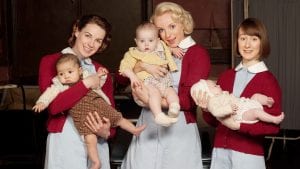 The word “midwife” which means “with woman” comes from Old English.
The word “midwife” which means “with woman” comes from Old English.
Many people think that a midwife is simply someone that comes to your house to deliver your child at home but like the oral tradition of preserving history and educating our kids, it may be one of the last remaining bastions of our humanity.
References to midwives can be found in the Bible, Roman and Greek manuscripts as well as in ancient Hindu records.
The midwife as a central figure in the birth of a child transcends our modern understanding of a childbirth practitioner’s role and the fact is that in the age of social media and artificial connections, the practice of midwifery is alive and well and in many places, continuing to grow…
Since 2005 The Royal College of Midwives (RCM) has run an initiative
encouraging expectant mothers to give birth without medical interventions such as cesareans, inductions and epidurals.
The Midwives Model of Care, which is based on the belief that both birth and pregnancy are normal life processes represents the philosophy of care directed at a woman’s individual reproductive needs.
Usually seeking to minimize or eliminate any unnecessary interventions, a trained/certified midwife is adept at contraceptive counseling, gynecological examinations and care during delivery and labor.
They are often more economical and commonly care for patients in a comfortable, private place such as a home but may also be attached with a hospital.
Many women decide to use a midwife in order to experience childbirth in all its natural splendor.
Midwives get involved with the patient on a more personalized level, dealing with nutrition and focusing on the whole process of pregnancy instead of just the event of childbirth.
Also known as ‘doulas’, midwives play a role among members of the African American community and enterprises like Mamas on Bedrest & Beyond provide personalized home care and support to high-risk pregnant women.
In-home delivery through the use of a midwife can help reduce some of the anxiety faced by women, especially if there is prejudice from other types of medical services.
The Healing Hands Community Doula Project helps to fill the void that women may have to deal with when it comes to care during and after pregnancy.
Doulas also help African American women with obtaining Medicaid and other benefits.
More like a personal friend than a regular nurse or doctor, midwives can strike a lifelong bond with their patients, as in the case of legendary midwife Mary Lou Kelsey who, in her illustrious career which spans more than 35 years has delivered more than 1,000 infants and has remarked that midwifery is becoming more known in the United States with Americans having seen midwives on Native reservations, the military and in rural settings.
She was herself inspired to enter midwifery by the traditions of Appalachia, near Ohio.
Customizing the experience of child birth and making the woman feel as comfortable, relaxed and safe as possible for this extremely important occasion are the key specialties of a great midwife.
In Afghanistan too, the establishment a midwifery training centre in central Kapisa province is helping to fight maternal deaths and Cambodian maternal mortality rates (once among the highest in the world) are declining amid success stories like Yeng Sienghay’s in Perah Andong village.
Cambodia’s well-trained midwives have been sent to rural areas where newborn and maternal deaths were the highest.
Lene Christiansen, UNFPA’s Cambodia representative says that the midwives “provide the backbone” to the health workforce for mothers and their children and the government has offered midwives money for births they complete in a health centre and live births at a hospital.
Some controversy has erupted about the practice of midwifery in the modern world, such as in the case of the deaths of 3 mothers and 16 babies at Furness general hospital in Cumbria where midwives contributed to unsafe deliveries because they did not want to see the births happen through medical intervention.
Regardless of any controversies, more people are getting involved and 188 of the 43,168 registered midwives in the UK at the end of March 2017 were men according to the Nursing and Midwifery Council.
Although admittedly a minute portion, male midwives are making their mark on the industry even though the idea that men could not fully understand childbirth has been widely held.
The head of midwifery at Lewisham and Greenwich NHS Trust, Giuseppe Labriola is male and some expecting mothers even prefer the experience of having a male midwife by their side throughout the process of bringing a child into the world.
Whether you decide to go for a ‘normal birth’ or with a midwife, make sure you do your homework first and know what your particular medical needs are. It also wouldn’t hurt to have the support of your spouse or community as well as a medical malpractice lawyer on standby, just in case anything should go wrong.
If you would like to contribute an article or contact our contributors, you can get in touch here
